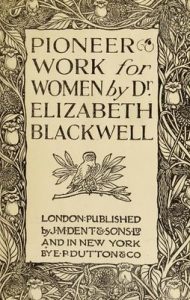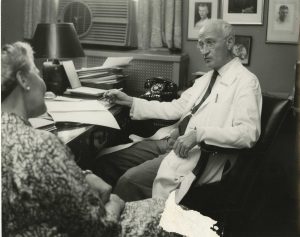In his talk at the UCSF Archives & Special Collections, Zach Bleemer will discuss how he has used data science – thousands of computer-processed versions of annual registers, directories, and catalogs – to reconstruct a near-complete database of all students, faculty, and courses at four-year universities in California in the first half of the 20th century, including UC San Francisco (which taught both undergraduates and graduate students at the time). Visualizations of this database display the expansion of higher education into rural California communities, the rise and fall of various academic departments and disciplines, and the slow (and still-incomplete) transition towards egalitarian major selection. Continue reading
Primary Source Sets
MHL Collections
Reference Shelves






![Soldiers Wounded at the Battle of the Somme Arriving at No. 22 General Hospital, 1916 [0004184]](http://www.medicalheritage.org/wp-content/uploads/2017/02/0004184_ref-180x300-150x150.jpg)
 This week, the Medical Heritage Library is celebrating the life of
This week, the Medical Heritage Library is celebrating the life of 